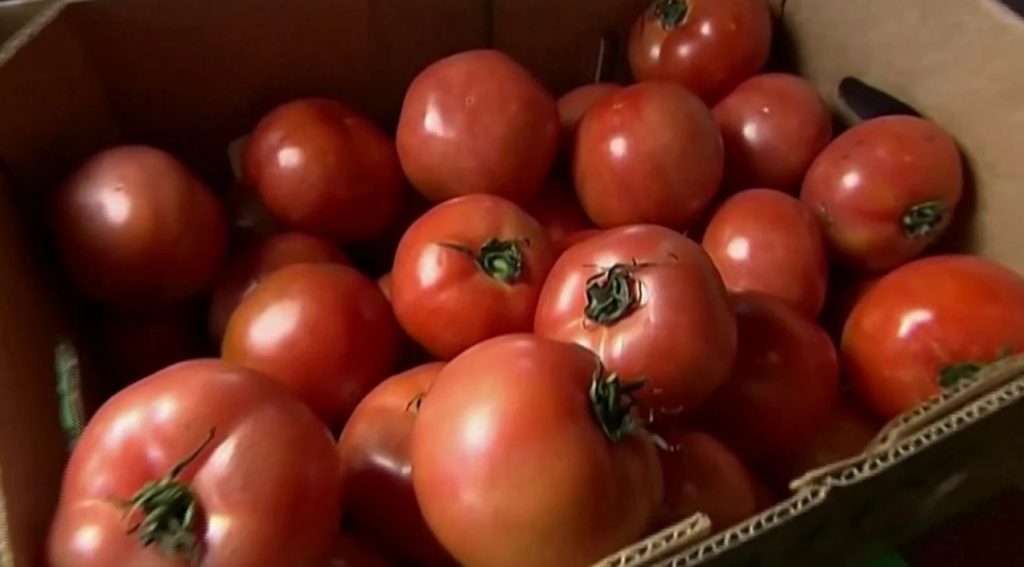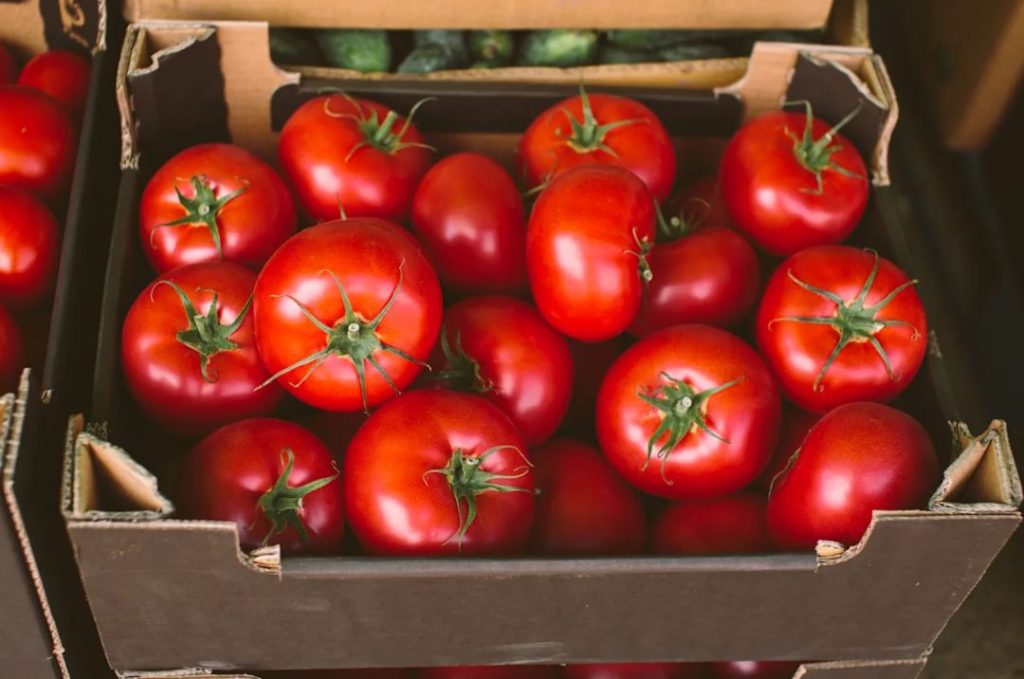UK food safety officials have issued an urgent alert after a surge in salmonella infections traced to contaminated tomatoes sold across the country. Authorities have identified two rare strains Salmonella Blockley and Salmonella Strathcona.
Two Unusual Strains Raise Concern
While salmonella is more commonly associated with poultry, eggs, and meat, this outbreak is unusual. The strains involved are rarely seen in the UK:
- S. Blockley: Typically found in East Asia and the U.S., this strain is seldom detected in Europe. A significant number of recent UK cases (about 81) were attributed to contaminated tomatoes
- S. Strathcona: Another uncommon type, responsible for around 24 additional cases
Their sudden appearance has alarmed health officials, who now believe that tomatoes—often eaten raw—are the most likely source.

Symptoms, Risks, and Vulnerable Groups
Symptoms of Salmonella infection usually appear within 12–72 hours and include diarrhea (sometimes bloody), vomiting, fever, stomach cramps, headaches, and chills. Although most recover within 4–7 days, the illness can be dangerous for vulnerable groups such as:
- Young children
- Older adults
- Pregnant individuals
- Immunocompromised people
Severe complications may include dehydration, reactive arthritis, or enteric fever—a high-fever condition requiring urgent medical care
Rising Foodborne Illnesses: A Decadal Peak
This tomato-linked salmonella outbreak coincides with a broader trend: a record-high level of foodborne illness in England. Between 2023 and 2024, both Salmonella and Campylobacter infections spiked by 17.1%—the highest levels recorded in a decade.
- Salmonella cases rose from 8,872 to 10,388
- Campylobacter cases surged from 60,055 to 70,352
Experts note the risk extends beyond produce to include poultry, eggs, raw meat, unpasteurised dairy, and cross-contamination in kitchens.
Expert Recommendations: Preventing Illness
UKHSA and Food Standards Agency (FSA) are emphasizing strict adherence to food safety protocols:
- Wash produce thoroughly, particularly raw fruits and vegetables.
- Prevent cross-contamination by using separate utensils and cutting boards for raw and cooked foods.
- Maintain proper storage: chill food below 5 °C and adhere to “use by” dates.
- Cook foods thoroughly, following times and temperatures listed on packaging.
- Wash hands regularly, especially after handling raw items or using the bathroom
Ill individuals should avoid preparing food and stay home until 48 hours after symptoms cease.
Handling Mild Cases & When to Seek Help
Most infections resolve without treatment. To manage symptoms:
- Stay well hydrated—oral rehydration solutions, broths, and water are vital.
- Symptom relief can include over-the-counter medication for fever and cramps.
- Antibiotics are only for severe cases or at-risk groups (young children, elderly, immunocompromised).
- Seek medical attention if symptoms persist, blood appears in stool, or dehydration arises
Moving Forward: Investigations in Progress
UKHSA is actively tracking case clusters and investigating whether the contaminated tomatoes are UK-grown or importe. These findings may shape future guidelines on produce handling and supply chain safety. The broader spike in foodborne illnesses has already prompted a public awareness campaign and collaboration with food businesses and local authorities to reinforce hygiene standards .
Final Thoughts: Stay Alert & Stay Safe
This outbreak shows that fresh produce like tomatoes can increasingly pose a public health risk—especially when rare salmonella strains are involved. The combination of high infection rates and unusual contamination underlines the need for vigilance in both consumers and food suppliers.

What you can do today:
- Wash all tomatoes and raw produce thoroughly before eating.
- Follow the 4Cs of food hygiene: Chilling, Cleaning, Cooking, and avoiding Cross-contamination.
- Keep high-risk individuals away from food preparation when sick.
- Stay informed about any recall alerts and updates from UKHSA and FSA.
- With careful food hygiene practices, it’s possible to substantially reduce the risk of infection and help curb this worrying national trend.

















